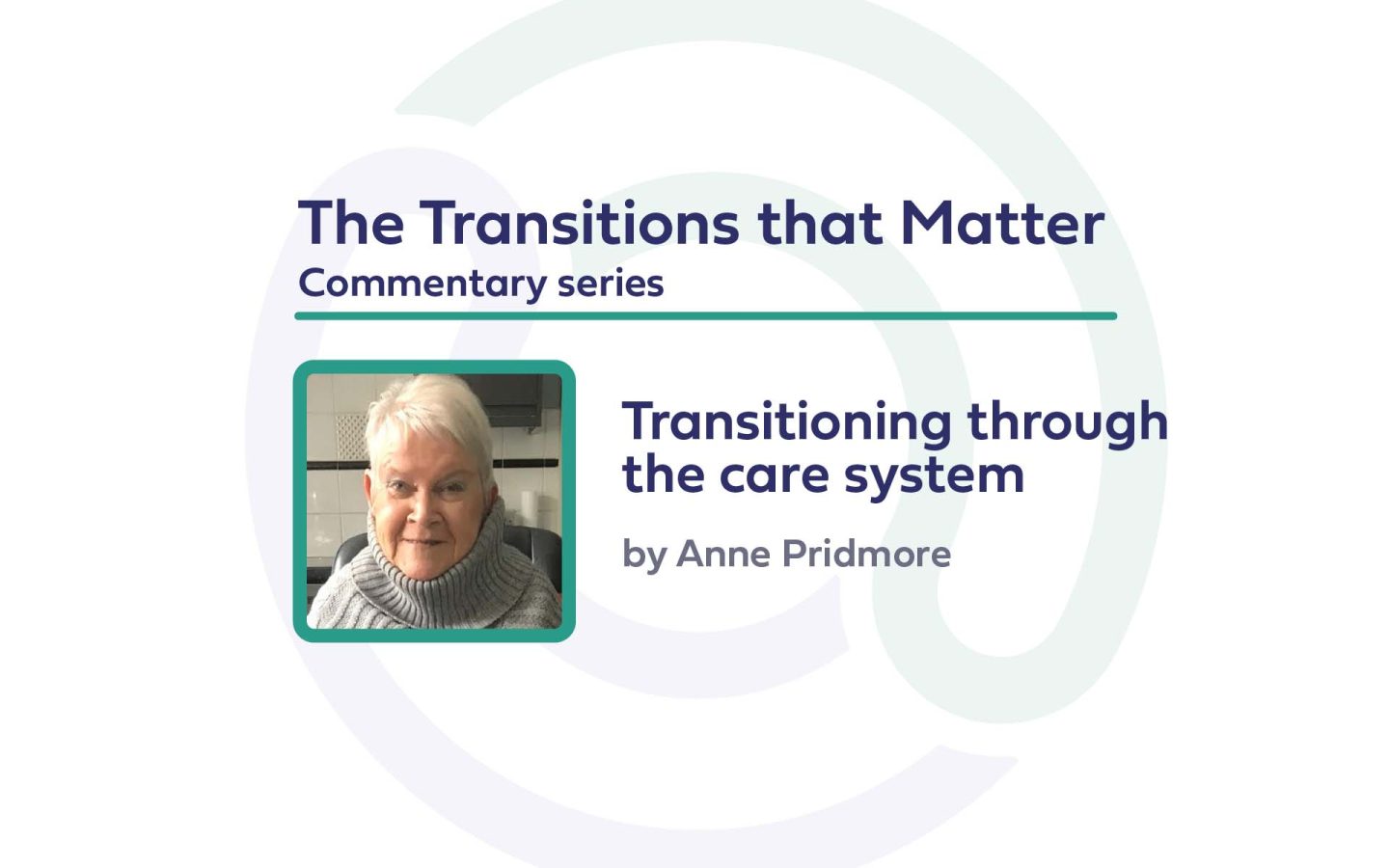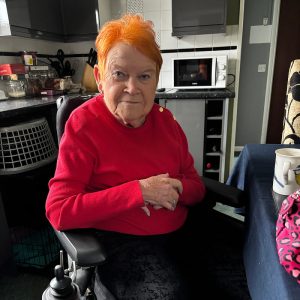This is a guest commentary. The views and opinions of the author may not always represent those of the Centre for Care.
Transitioning through the care system
In 1984 my husband of 20 years left me. This was the beginning of a never ending nightmare the struggle to get my life back. Not only had I lost my husband I found myself caught up in a system that was unfit for purpose.
During the day, I received two twenty minute calls from the home help (domiciliary care). They sent a home carer in the morning to get me up and a district nurse to help in the evening. When I asked the home carer to get my bread out of the cupboard in order for me to make toast. She told me that she could not do that, as it was not on my care plan. I had a bath nurse on a Monday and of course in this country most bank holidays fall on a Monday, so this meant that I could go as long as 3 weeks before getting a shower.
Although I was the youngest person on the nurses list she came to put me to bed at eight o’clock I could not stay in bed from eight o’clock until nine o’clock the next day, without needing the toilet, so this was a big issue. I had to teach myself to get in and out of bed and it was impossible to have any sort of social life.
In 1986 I wrote to the director of social services telling him that the services provided by him were rubbish and I wanted to change these for cash. After two years of fighting Leicestershire County Council introduced the Independent Living Project (not to be confused with the ILF). In 1991 and the birth of the Independent Living Fund saw my escape to freedom. No more bath nurses, district nurses etc.
Perhaps it is at this point I should explain that the birth of Independent Living Movement in this country came out of three men who found themselves stuck in a Cheshire Home and made a plea to get out. These three men got the idea from Berkley University where students campaigned to get support to do their degrees. Out of this came the idea that housing them in residential care was far more costly than having the funding to buy in their own support.
In the early 90’s along with other disabled people we protested in London in order to change the social security rule that said local authorities could not pay money for care directly into peoples bank accounts. We stopped the traffic in Parliament Square by chaining ourselves to buses. After many such protests, we managed to get the Government to change the law. This meant that local authorities could pay money directly into the recipients bank account. This was called Direct Payments and took until 1996 to achieve the Direct Payments Act.
This is the next BIG transition for disabled people
At the time there were many Disabled People User Lead Organisations (DPULO’s). The difference between these and the big charities is that they were run and managed by disabled people there were no interference from the establishment. Looking back on this period I can recognise that this is when we were at our most militant. There was also Direct Action Network (DAN) of which I was part of. Unfortunately there are very few left that can call themselves DPULO’s now. Perhaps one could say that we became too powerful and the government wanted to clip our wings.
It took me seven years to get any quality of life at all and I started off with a very small package of care till I managed to get 24/7, but it wasn’t easy to obtain and still isn’t. Every year I have to go through the assessment process which is very gruelling and a waste of resources considering my impairment – Cerebral Palsy – is never going to go away. In the year 2019 I managed to get Continuing Health Care funding which does appear to have alleviated the situation as my Local Authority is no longer responsible for all the budget.
What will the next transition be?
Social care is bankrupt.
Charging policies are forcing many disabled people to choose between eating, keeping warm or paying charges.
The minimum income guarantee (the money we’re expected to live on) has not increased in line with inflation.
Will our next transition be back to the institutions?
About the author
Having spent over 30 years as a campaigner in the disabilities rights world, I have accrued a great deal of valuable experience and expertise on a diverse variety of issues that affect disabled people. As a disabled woman myself, I have lived experience of disability and the obstacles it can present. Having spent many of my childhood years in hospital, I missed out on formal schooling. When I left private Business School aged 15, receiving no support in finding employment, I learned to create my own opportunities in life and quickly found work which led to a 25 year career in all aspects of office administration. After later going on to complete an Hons Degree in Psychology. I worked in and chaired numerous Disabled Peoples User Led Groups locally, nationally and in Europe speaking in Brussels parliament and in Strasbourg, and also at a conference in South Africa as part of a delegation with Skills for Care. My key areas of specialism are disabled women and domestic violence, and all aspects of Independent Living, of which I am a strong advocate and supporter for disabled people employing their own staff. I run my own charity Being the Boss which supports people who employ their own Personal Assistants. I currently run a team of Personal Assistants who support me to live in a lifestyle I choose.





